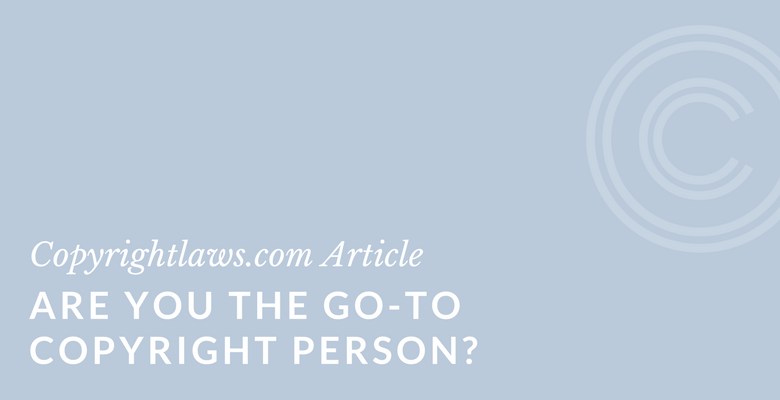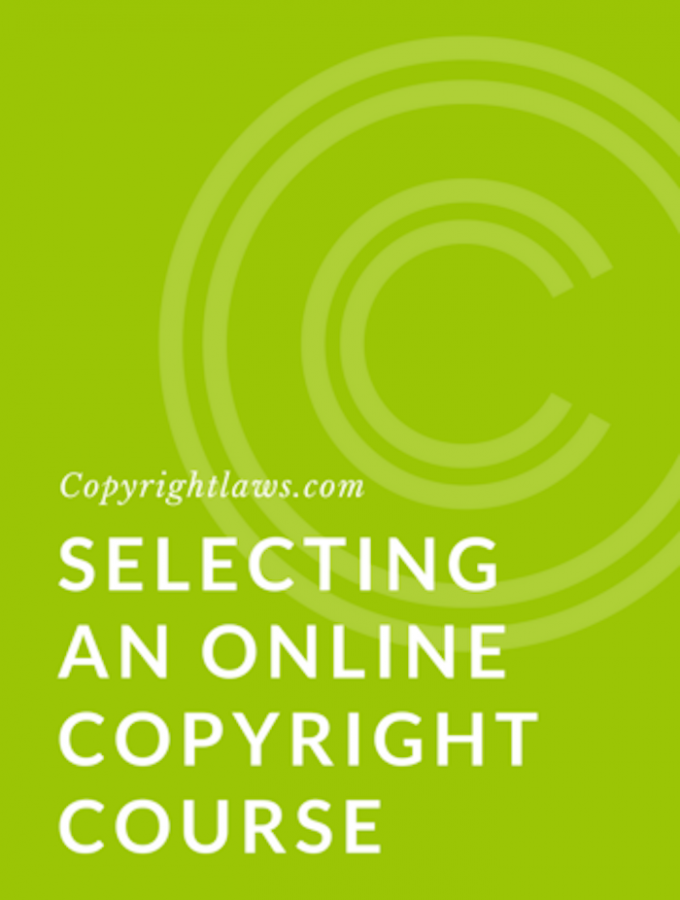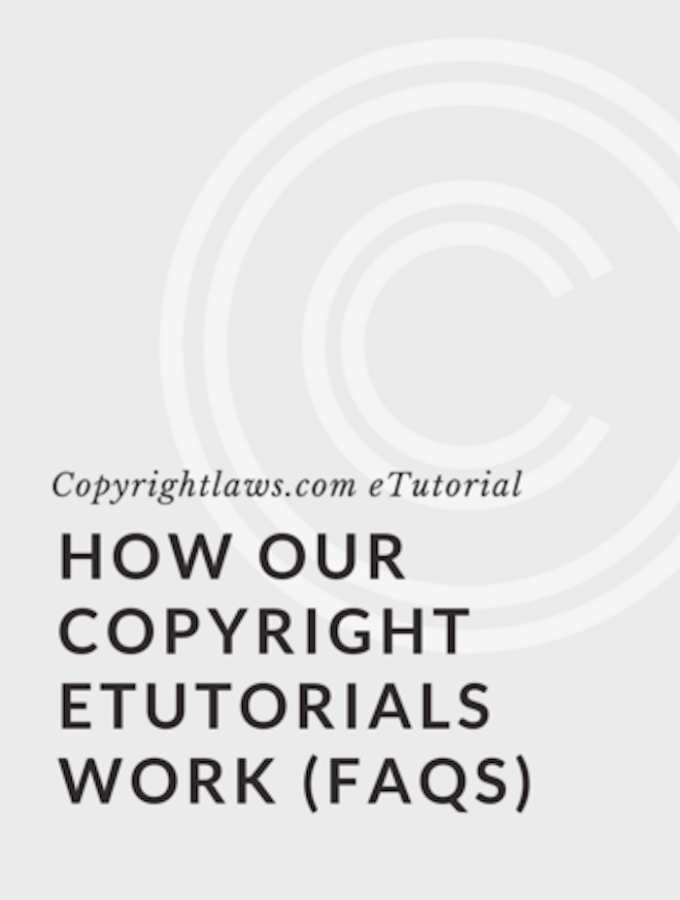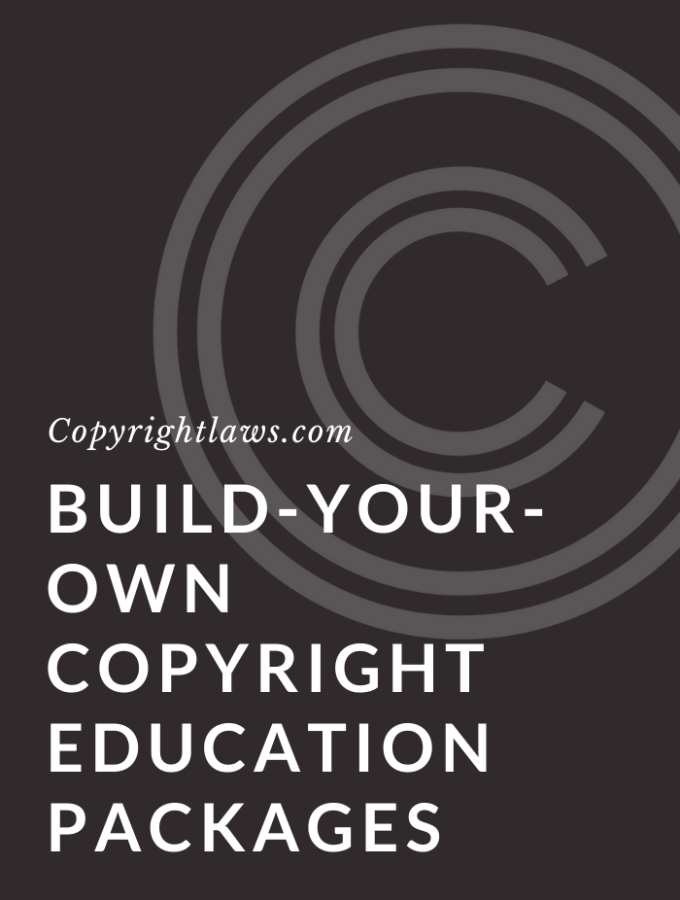Many times I hear my students say they've become the go-to copyright person, regardless of whether they're librarians, library directors, information managers or architects, content managers, risk management specialists, communications specialists or editors. This happens whether they work in libraries, archives, museums, and for-profit or nonprofit organizations.
If you've fallen into the designated copyright contact person role (or if you've chosen it), follow the five-point plan below to get up and running. This plan is for any nonlawyer who's that go-to copyright person. Also, learn how to brand yourself as the go-to copyright person and how to increase your copyright knowledge.
Five Essential Steps to Becoming the "Go-To" Copyright Person
1. Get Authority
If you're handling copyright and licensing issues but your job title doesn't include the word “copyright,” get it changed. Why? You …
- Want fellow employees to find you in the company directory
- Need people to follow your advice when you tell them they can't copy a newsletter or other item
- Need confirmation in your own mind that you are, in fact, the go-to copyright person
Sample titles include Copyright Librarian and Copyright Officer.
If you're going guide people on copyright compliance, senior management should be aware of your role and why certain things are or aren’t permitted. Your fellow employees also need to recognize your role in this complex and often frustrating area. You need authority to provide advice and guidance and ensure copyright compliance where necessary.
2. Get Correct Information
Take the time to find out what’s happening on the copyright and licensing front in your library and organization. You should understand:
- What sorts of copyright materials are being used
- Whether print books are an issue, or just electronic books
- If there are questions regarding public performance of movies, or concerns relating to copying sound recordings
You also have to consider any license agreements your library or organization has for the use of third-party content, databases and electronic journals. Licenses allow you to use content within specific terms and conditions, not in any manner whatsoever.
Examine your existing licenses. Do you have licensing agreements no one can understand? How are copyright and licensing issues resolved? Do you answer questions about them, or are they dealt with in different ways by different people? For further information see A Simple Guide to Licensing Electronic Resources: How To Address Your Licensing Issues with Confidence. This article also offers you the downloadable guide, 8 Essential Tips for Licensing Electronic Resources.
3. Get a Budget
As the copyright go-to person, you'll find there are many things to spend money on. It's important to purchase books and newsletters about copyright and place them on a reference shelf/intranet page for you and your colleagues to consult. You need some training in copyright law so you can make sound judgments that keep your copyright risks to a minimum. And you may want to train coworkers on the basics of copyright law and licensing, too.
You may need money to hire a copyright consultant or get assistance from your legal department (if you have one) to develop a copyright policy. The policy will guide copyright compliance matters in your organization and be a reference tool for you and your colleagues. You may also need a budget to consult with an external copyright lawyer on questions you can't answer.
4. Get Educated
You don't need to get a law degree to be the copyright go-to person. In fact, many nonlawyers who work on copyright issues daily know more about managing copyright than many lawyers. Locate books on copyright and licensing that are written for nonlawyers (there are several available). Read websites and blogs (keeping in mind that many of these may have a particular perspective rather than provide straightforward copyright information).
Self-study can take you far on copyright issues. But you should also consider taking online and in-person courses to learn basic principles, upgrade your knowledge, and stay on top of changes in the law.
5. Get Help
Who do you turn to when you can't answer a copyright question? Do you have a network of people you can contact for assistance, such as colleagues in similar positions? Does your organization have an attorney, either on staff or on retainer, who can advise you on copyright matters outside your comfort zone? Take the time to determine your lawyer's role in managing copyright issues.
It's important that you establish contacts with other copyright professionals. Build a support system by attending conferences and meeting others who work in copyright. Also network with fellow students in copyright courses, and join online copyright communities.
Understand Copyright Risk Management
A bonus tip for any go-to copyright person is to always understand that copyright law is complicated and answers often depend on the circumstances. They may require a judgment call as well as an assessment of risks. Part of your job is to keep copyright risks to a minimum by understanding how copyright works, understanding what public domain means, how Creative Commons licenses work and much more. See this list of best practices to lower copyright risks.
Now, Get Going!
Although you may never have intended to be the copyright go-to person in your organization, you may find the job offers much satisfaction. You'll be a key player in helping people gain access to information, lowering your organization's risk of copyright infringement, moving work forward, and eliminating the frustration and uncertainty that others confront when using third-party content.
Although you may often say "no" to requests and have to find creative ways to get to “yes,” your colleagues will soon appreciate your value in guiding them through the copyright maze.
If you're the go-to copyright person in your organization, you're an ideal candidate for the
Copyright Leadership Certificate program.




